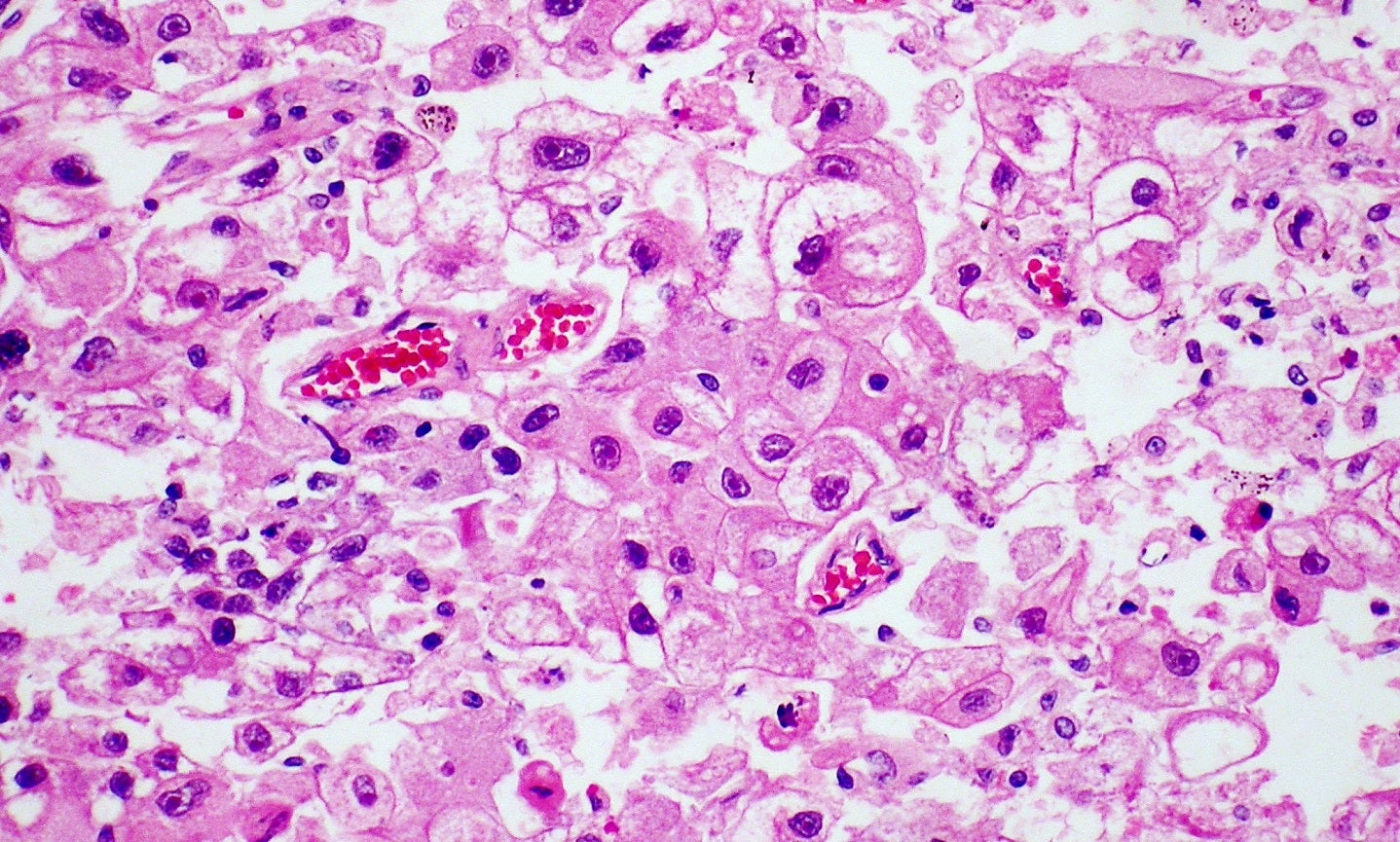
Medivir has completed the initial dose escalation part (Phase Ib) of its Phase Ib/IIa trial of fostroxacitabine bralpamide (fostrox), along with Lenvima, in hepatocellular carcinoma (HCC).
The open-label, multi-centre trial has been designed for assessing the tolerability, safety, and efficacy indication of fostrox, along with two already existing drugs.

Discover B2B Marketing That Performs
Combine business intelligence and editorial excellence to reach engaged professionals across 36 leading media platforms.
It includes HCC patients whose first-line treatment is ineffective or intolerable.
In the trial, fostrox is given along with either a tyrosine kinase inhibitor, Lenvima, or with an anti-PD-1 checkpoint inhibitor, Keytruda.
The trial’s preliminary data from the dose cohorts are positive.
Fostrox given along with Lenvima had a good safety and tolerability profile, with no dose-limiting toxicity observed.

US Tariffs are shifting - will you react or anticipate?
Don’t let policy changes catch you off guard. Stay proactive with real-time data and expert analysis.
By GlobalDataA 30mg fostrox dose was determined as the recommended dose (RP2D) for the first combination arm of the trial’s Phase IIa segment.
Medivir CEO Jens Lindberg said: “It is very satisfactory that we have now completed the first part of the study with good preliminary results and have been able to determine the starting dose for the first combination arm in the Phase IIa part of the study.
“With the great interest we have seen in the study, it is also gratifying for the patients that we can now start the first combination arm in the phase 2a part.
“Although Lenvima is now widely used as a second-line treatment for advanced HCC, there is still a need to improve the number of patients who respond to the treatment.”
The company stated that the Phase Ib dose escalation part with Keytruda is still ongoing.
Up to 30 additional HCC patients are planned to be recruited in the Phase IIa part of the study for an initial assessment of safety and efficacy.
The trial is being conducted at 14 clinics in South Korea, Spain, and the UK.





